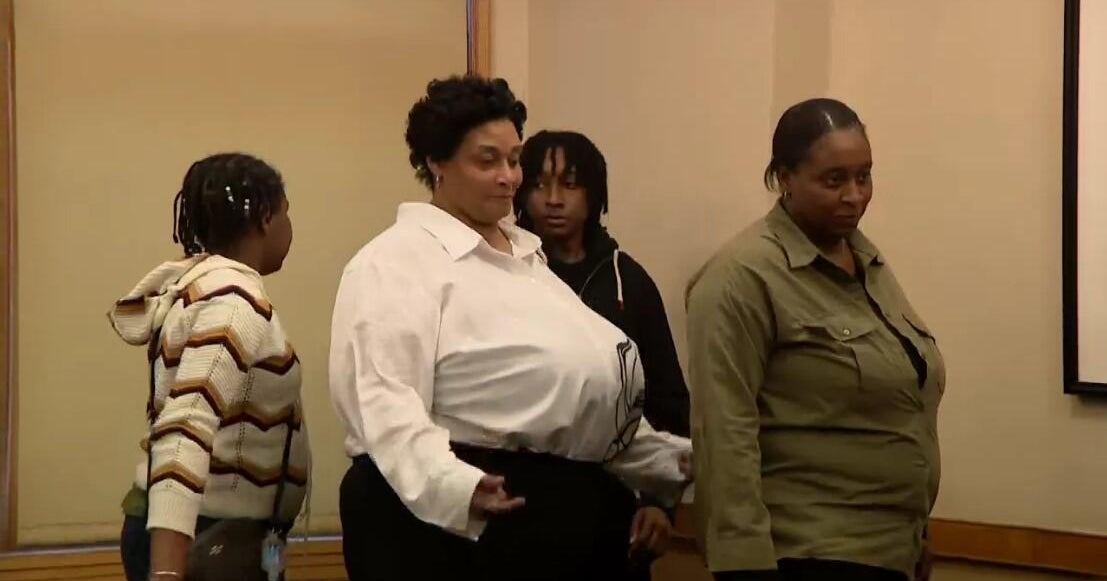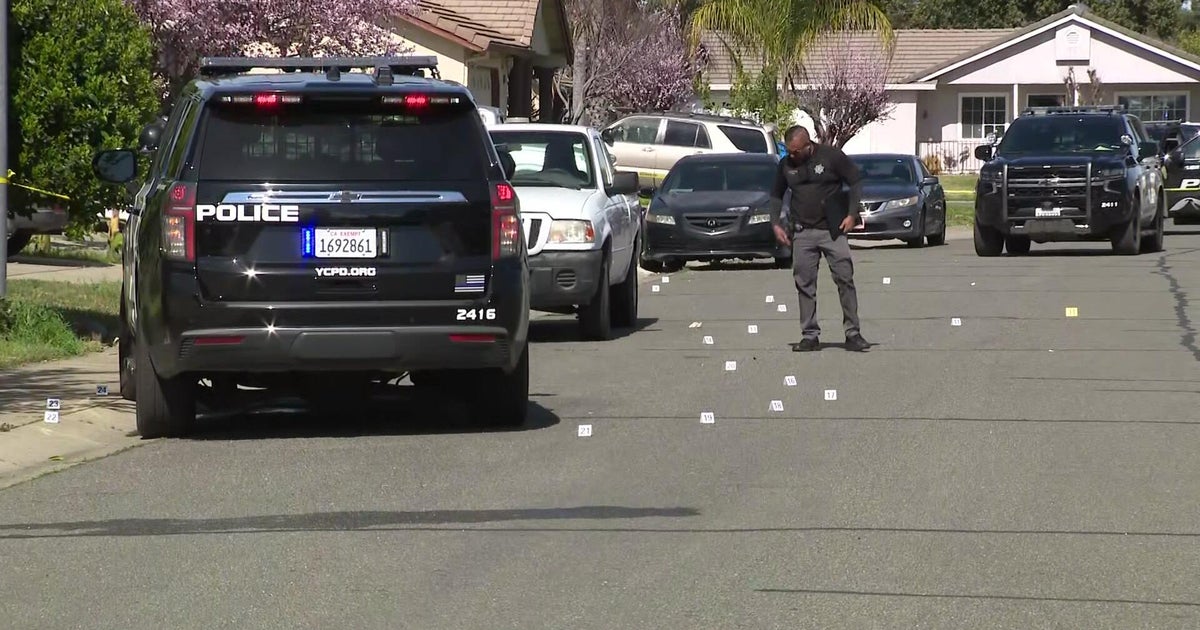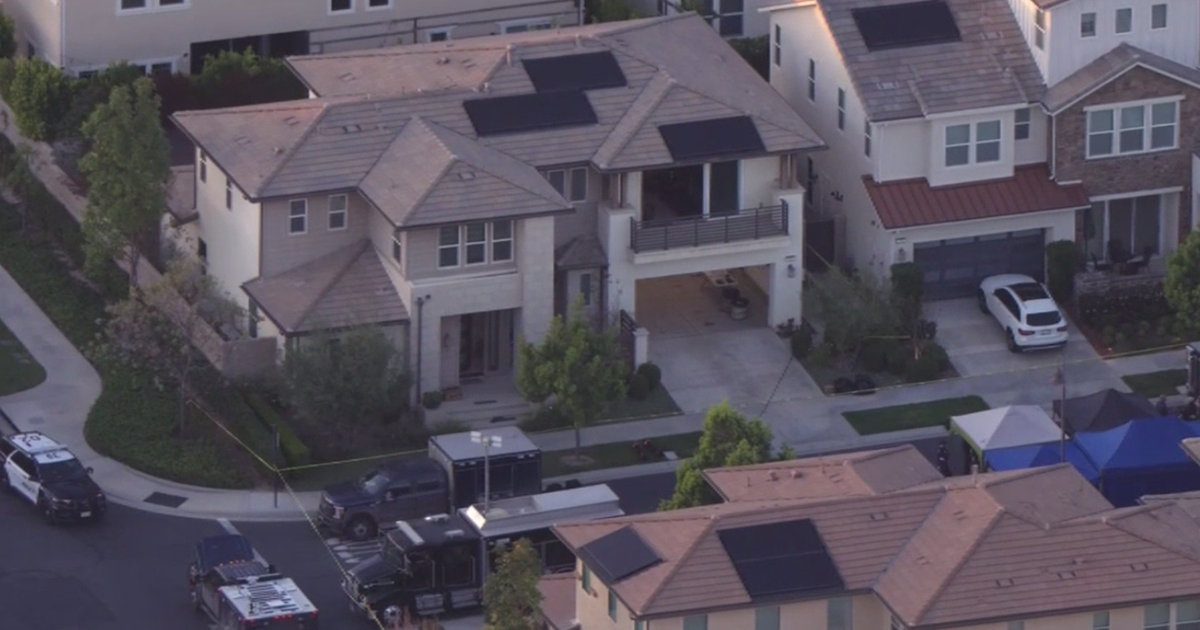Burge Torture Called 'Cancer' That Must Be Stopped
Updated 1/20/11 - 5:14 p.m.
CHICAGO (CBS) -- Police torture and misconduct under the command of former Chicago Police Lt. Jon Burge was a "cancer" that destroyed relations with the black community, a former Chicago policeman and activist said at Burge's sentencing hearing.
At times near tears, Howard Saffold, the former head of the African American Patrol League and former security chief for Mayor Washington, said a message must be sent that torture and evidence-planting cannot be tolerated.
Stories of abuse to obtain confessions and misconduct--including planting drugs on innocent suspects--were commonplace in African American neighborhoods and created a mistrust between police and residents.
Saffold called police misconduct a "cancer" that "cannot be put on probation" and must end.
Before calling an end to proceedings for the day Thursday afternoon, U.S. District Judge Joan Humphrey Lefkow heard testimony from Saffold, two men who said they were tortured by Burge and his detectives and a University of Chicago professor specializing in African-American history in Chicago.
The sentencing hearing was set to resume on Friday.
LISTEN: Newsradio 780's John Cody reports
Podcast
One of Burge's torture victims, Anthony Holmes, testified that he lost contact with his family while serving a 30-year prison term for a murder he did not commit. Holmes confessed to the murder after being brutalized during interrogation.
"The man tried to kill me," Holmes said on the stand Thursday morning.
As CBS 2's Susanna Song reports, Holmes testified that when Burge was interrogating him in 1973, Burge shocked him three times with a homemade electrical device, and suffocated him with a bag.
Holmes and Melvin Jones were among the dozens of suspects who have accused Burge of shocking them with a homemade electrical device, or suffocating them with typewriter bag, forcing them to confess to murders they didn't commit and spend years in prison.
Jones, who was arrested by Burge in 1973, said "He electrocuted me. He put a gun to my head."
As CBS 2's Dorothy Tucker reports, you could still see their pain on their faces and the tears falling from their eyes as Holmes and Jones testified at Burge's sentencing hearing. Holmes said Burge laughed after torturing him into confessing.
"He did laugh. He didn't care. He said 'n*****, I got you.' He said, 'n*****, I broke you,'" Holmes said after the hearing.
Jones said he was hopeful that Burge would face the sentence he deserves.
"I just think that justice is close to being served," Jones said.
Holmes said he hopes Burge is sentenced to spend as much time in prison as he did -- 21 years.
"I'd like to see him walk in my steps so he will understand what I went through," Holmes said.
Burge's supporters will get their turn to testify at his sentencing hearing on Friday. Burge's attorneys said more than 30 people--many of them police officers--have sent letters to the judge asking for leniency. One called Burge a "policeman's policeman.''
Burge, 63, was convicted of perjury and obstruction of justice on June 28, 2010, for lying in a civil suit when he denied committing or witnessing torture.
Since he was fired from the Police Department in 1993, Burge's name has become synonymous with police brutality in Chicago.
Lefkow has indicated that she is not likely to impose the maximum term.
More than 100 victims have said the torture started in the 1970s and persisted until the 1990s at police stations on the city's South and West sides.
Dozens of suspects -- almost all of them black men -- claimed that Burge and his detectives tortured them into confessing to crimes ranging from armed robbery to murder.
University of Chicago professor Adam Green testified Thursday that police torture at the hands of Burge and his detectives was "a denial of the humanity of all Chicago residents" and "a wrong that cannot go unresolved."
In 2006, independent investigators appointed by the Cook County state's attorney's office concluded that the allegations of torture had merit, but the statute of limitations prohibited any charges.
However, federal prosecutors later charged Burge with perjury and obstruction of justice for lying about torture in depositions for a civil lawsuit.
At Burge's trial, prosecutors presented testimony at trial from five men -- Holmes, Melvin Jones, Andrew Wilson, Gregory Banks and Shadeed Mu'min -- who claimed Burge or his men tortured them to get their confessions.
Several people testified that, between 1972 and 1993, Burge and his detectives put plastic bags over their heads, placed guns to their heads and played Russian Roulette, or shocked or squeezed parts of their bodies.
Before Thursday's hearing, activists with the group Witness Against Torture marched outside the Dirksen Federal Building -- some of them dressed in orange prison-style jumpsuits with black bags over their heads -- to send a message that torture doesn't happen only at Guantanamo Bay.
"Torture, that we think of as something as very far away, happened here in our own city." said Cat Willett, with Witness Against Torture. "It's a horrifying thing to think that people, especially people in power, can lose their humanity in such a really stunning and terrifying way."
Burge was charged with lying about the alleged torture in a lawsuit filed by former death row inmate Madison Hobley, who was sentenced to death for a 1987 fire that killed seven people, including his wife and son. Hobley was later pardoned.
Hobley claimed detectives put a plastic typewriter cover over his head to make it impossible for him to breathe. Burge denied knowing anything about the "bagging" or taking part in it. The indictment against Burge never said Hobley was tortured, instead accusing Burge of lying with respect to participating in or knowing of any torture under his watch.
Burge has been free on bond since his five-week trial that ended in June.
The allegations against Burge and his men even helped shape the state's debate over the death penalty. Former Illinois Gov. George Ryan released four condemned men from death row in 2003 after Ryan said Burge extracted confessions from them using torture.
The allegations of torture and coerced confessions eventually led to a still-standing moratorium on Illinois' death penalty.
This month, legislators voted to abolish capital punishment in Illinois. The bill is awaiting the signature of Gov. Pat Quinn.
(TM and © Copyright 2011 CBS Radio Inc. and its relevant subsidiaries. CBS Radio and EYE Logo TM and Copyright 2010 CBS Broadcasting Inc. Used under license. All Rights Reserved. This material may not be published, broadcast, rewritten or redistributed. The Associated Press contributed to this report.)







